'I started out washing windows now I clean crime scenes'
With more than 30 years of cleaning experience, Ben has built up sinuses of steel
- Published
Warning: This story contains details of bodily fluids, death and violence that some people may find disturbing
It's not a job for the squeamish.
Extreme cleaner Ben Giles has spent 25 years perfecting the knack of eliminating any and every stain caused by spills, severings and explosions from crime scenes.
When Ben, 49, started out cleaning windows in a small town in west Wales he could never have guessed it would lead him to a multi-million pound business after discovering, by chance, that he could put a hefty price tag on cleaning up the aftermath of a disembowelled body or a bathtub full of faeces.
"The bath was completely level at the top with faeces, the toilet was full of faeces, kitchen was disgusting, the floor was moving with fleas," he said.
So how did it all begin?
Ben was cleaning windows in Cardigan, Ceredigion, when one of his clients asked him to clean a property that had been empty for 10 years.
With little more protection than a polyester face covering, it was the clean up that started it all.
'A drunken Butlin's holiday mishap saved my life'
- Published18 October
Welsh castle's I'm a Celeb props being sold off
- Published18 October
Ben described opening the door to a stench so bad that one of the men helping him was sick inside his mask.
"We had to pull the mask off him, all of the sick went on to the floor, so now we had to clean up his sick as well as the rest of the property," Ben joked.
Ben invoiced the client £2,000 and "no-one questioned anything", which is when he realised he had tapped into a goldmine.
"We thought 'if we could make so much money doing this, what's the worst thing we could clean?' Ultimately we would clean anything."
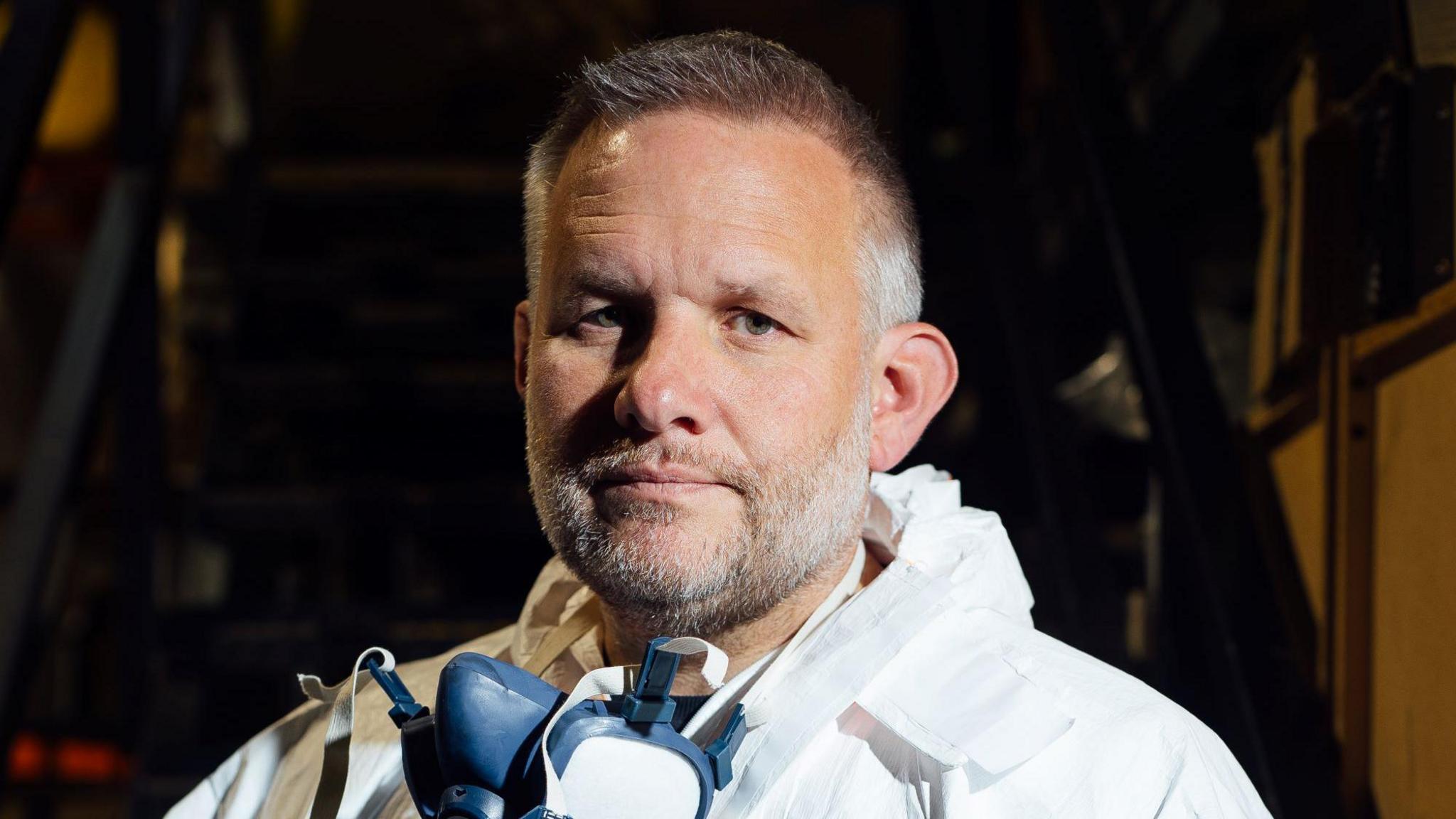
Ben says he "pushes and press down" his emotions from seeing and cleaning such horrors
Their first job was a man who had died in an old farm house and was not discovered for two months.
His body had decomposed through the carpet, through the wooden floor and into the concrete.
"We opened the door and this swarm of bluebottles flew past us, we had no idea if they were carrying any kind of pathogen and we had to try and extract eight-week-old body fluid from concrete.
"It was a real suck it and see, we didn't have a clue.
"I remember we were putting Vicks under our nose, one lad he coughed and two bits of orange peel shot out of his mask. He had put orange peel in to try and mask the smell."
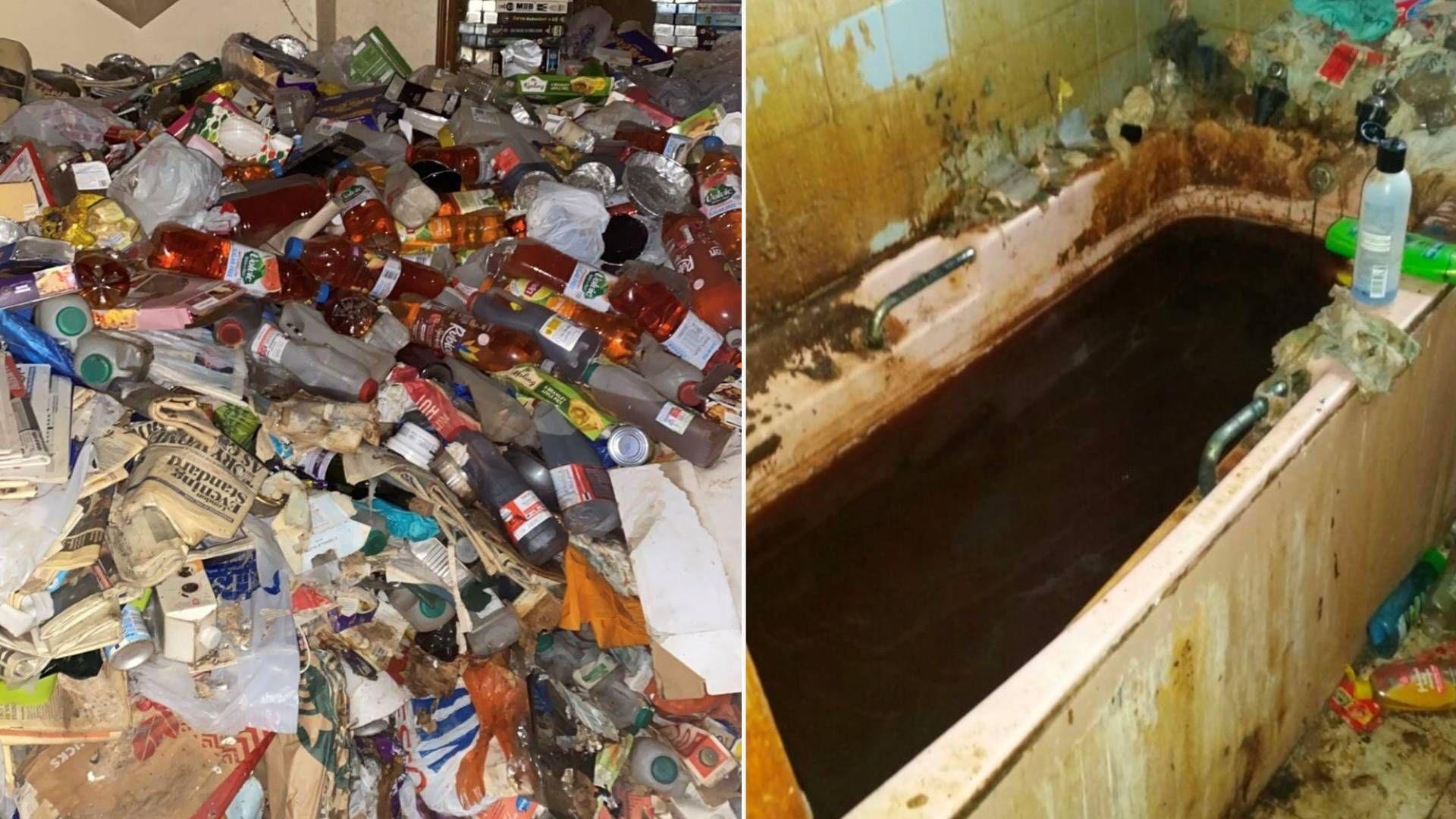
Ben recalled one of his fellow window cleaners being sick in his face mask at their first house clean up
Warning: The following image contains remains of marine life
One of the first in the field, Ben gained his initial biohazard cleaning accreditation by cleaning tomato sauce off a desk in 2000.
He described it as hilarious as it had no reflection on the real job he would do.
Now, 25 years later, his company is yet to decline a job - from clearing the carcass of a 20-tonne whale, to blood baths and the aftermath of a suffocation caused by hoarding - Ben has seen it all.
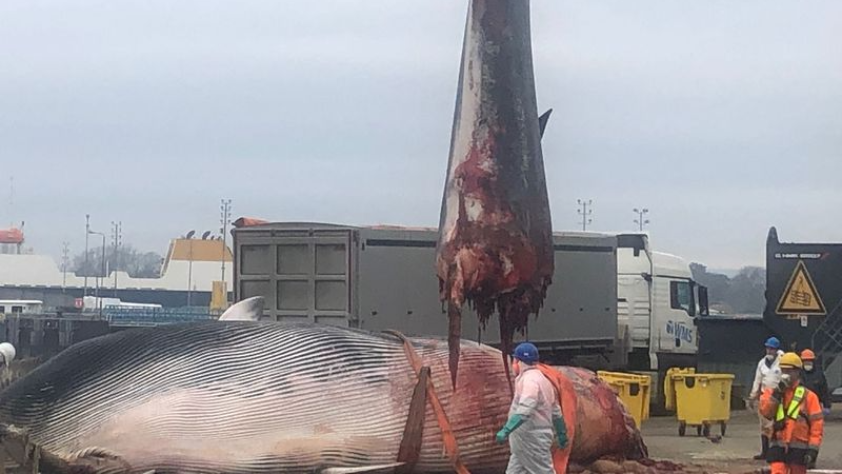
Ben and his team cut the 20 tonne Fin whale in half and airlifted the waste into two artic lorries for disposal
But the question on people's minds when they discover what Ben does - how does it smell?
The scent of a body varies depending on a person's body fat, he said, even if they have decomposed for the same amount of time.
"An elderly woman, weighing about five stone, you can walk in to the property and not smell a thing.
"Then you can have a 20 stone man or woman that's been left for the same amount of time and you can smell it at the door."
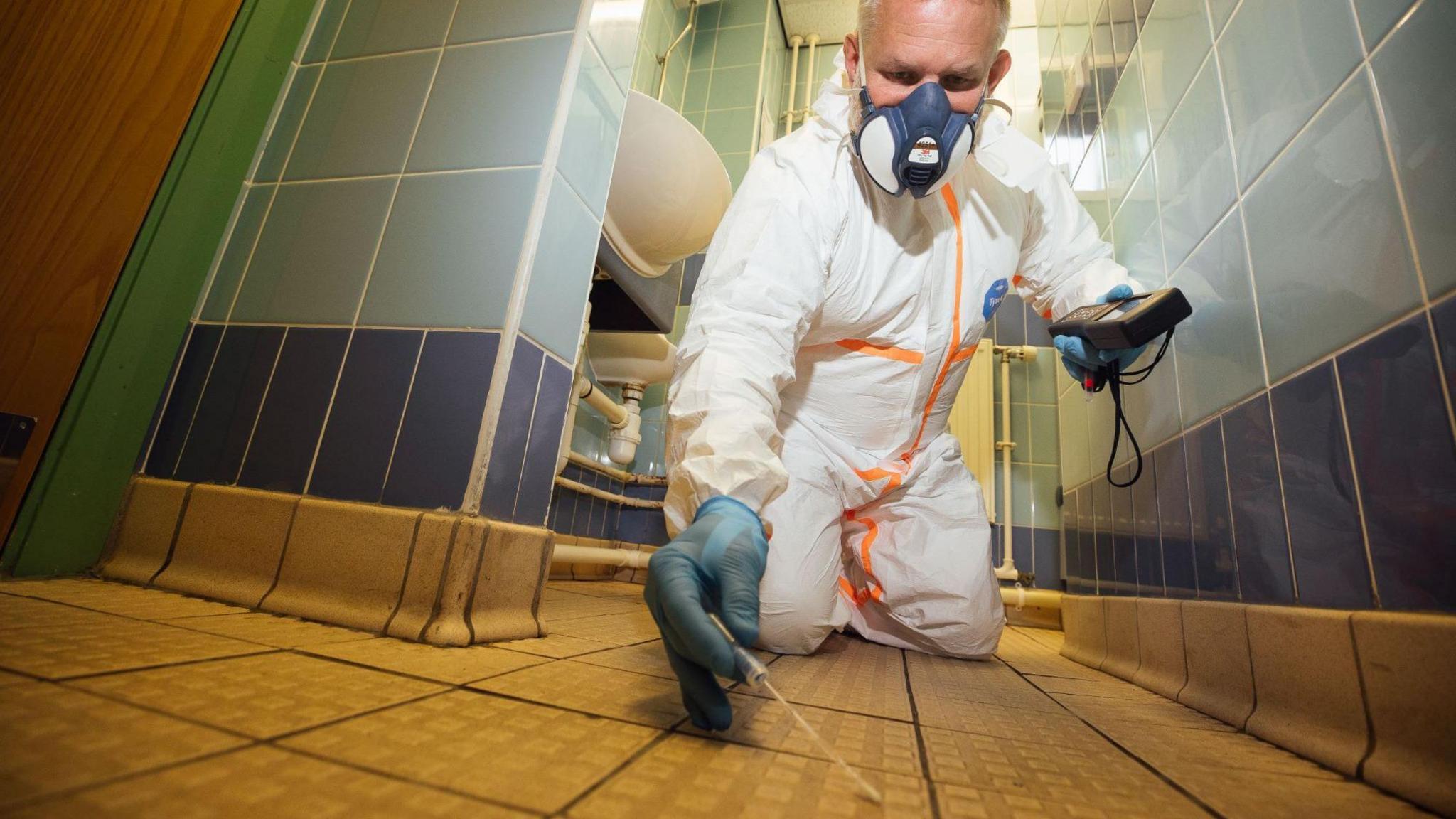
Ben says cleaning standards have changed dramatically over the past 25 years
Having grown up in a family of self-sufficient farmers, Ben was no stranger to being knee deep in manure, or helping his father birth a rotting lamb from inside an ewe.
He left school at 16 and, not being interested in university and wanting to stay in mid Wales, started cleaning windows.
After his unexpected shift into the macabre, when he "saw something terrible, I saw pound signs".
What started as two or three jobs a month has now grown to between 50 and 100 jobs a week and his firm is called in when police need a crime scene cleaned.
While most cleans rely on numerous solvents and disinfectants, for run-of-the-mill carpet stains Ben relies on the basics - using either washing powder or liquid and warm water.
"Dab on and then get a glass tumbler and rub over the stain in a circular motion, holding the base of the glass in the palm of your hand and the open mouth of the glass on the carpet," said Ben.
"The rotation motion lifts the stain up into the glass and the inside of the glass can be wiped to remove the collected waste."
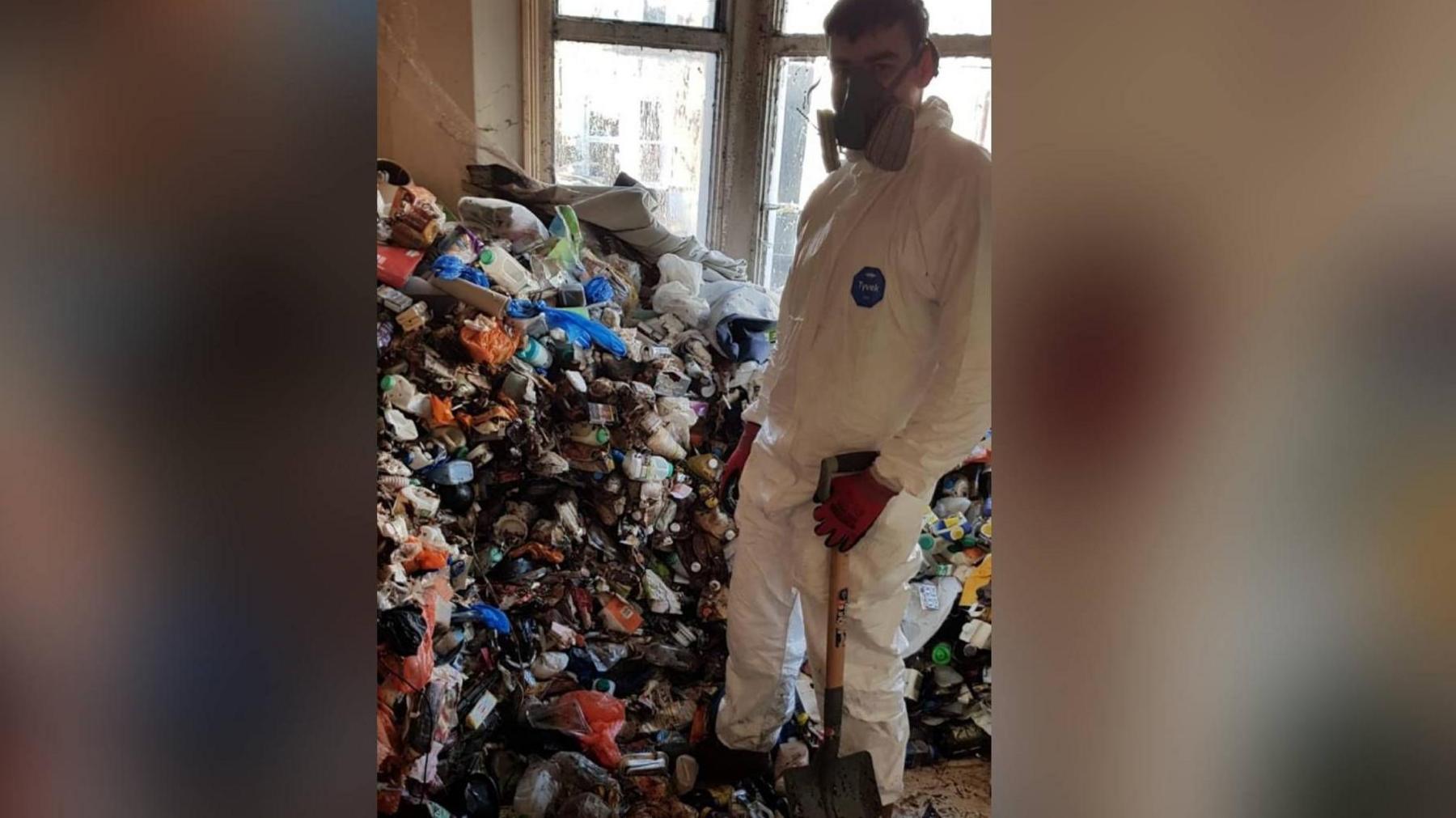
There is no job too gruesome for Ben to turn down, from cleaning out homes of people who hoard to the carcass of a 20-tonne whale
Ben has trained about 3,500 people, but admits it's not a job for everyone - it's hard to leave at the front door and some cases have stuck with him for years.
In one case, a man "bludgeoned" his wife and left her in their home for three days until she was found, still alive, by their neighbour only to die on the way to hospital.
"In all my time I've never seen anything so violent," he said.
A "pretty horrendous" scene greeted him as blood had sprayed on and in every surface.
"That for me was tragic on so many levels. I felt so sorry for this lady.
"These were two professional people, I still to this point don't know what made somebody react like that and take someone's life.
"I can't let my mind go into that kind of mindset because it's quite dark."
Ben has also been faced with the harrowing prospect of being called to the aftermath of a family dog killing a baby, "so while we're cleaning up in one room we can hear sobbing and crying next door".
He added: "There has been times like that where I've had to put a business hat on and get the job done and know that's my job, I have to just do this and be able to walk away.
"I press it down and push it down."
His ways of coping include going for walks along the beach, playing golf or stroking his highland cows.
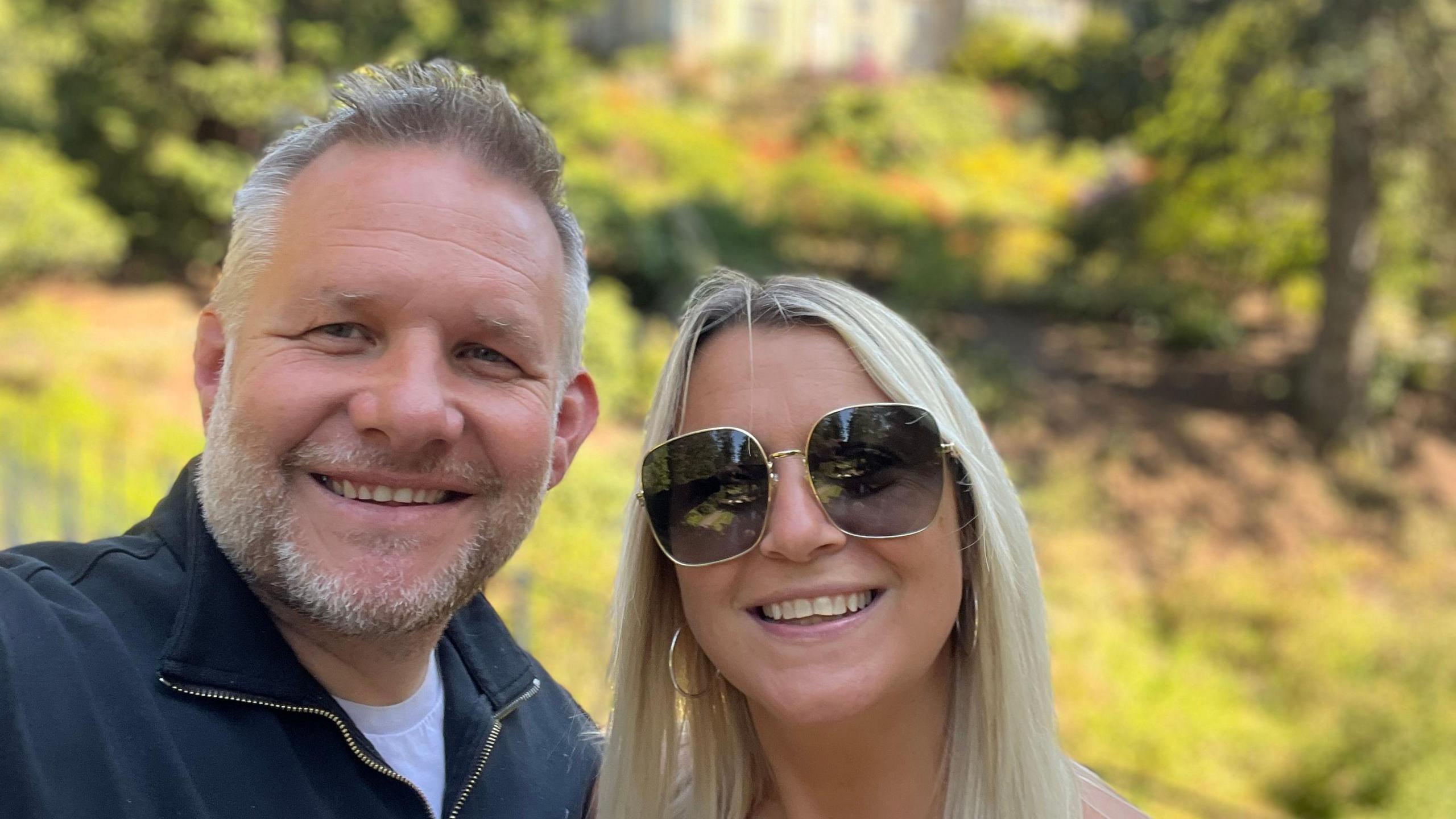
Ben credits his wife Lindsey and his family for being his "haven" to deal with the gruelling and gruesome job
It was only when writing his autobiography, The Life of a Crime Scene Cleaner, did Ben open his emotions to the sights he had witnessed.
"It was like all of the emotions just came to the surface. I wouldn't call it therapy, as I can't say I feel better, but I let it out," he admitted.
"I had titles in mind for each story and as I started writing about each case, I started crying."
Ben credits his family for supporting him amid the emotional turmoil created by his job.
"I knew whatever happened in work, I came home and I was in a haven of people who I love and love me."